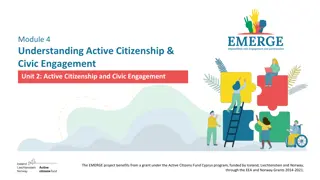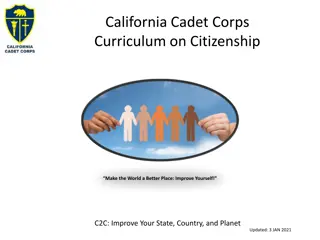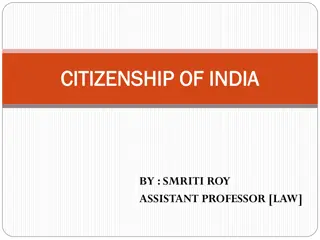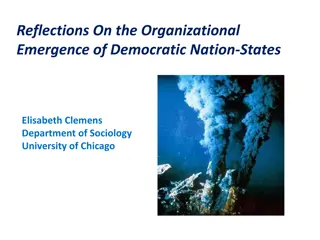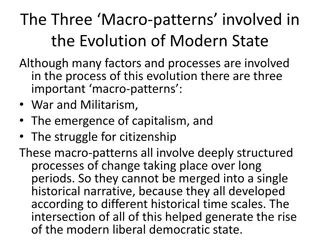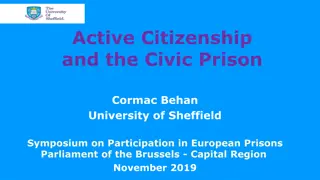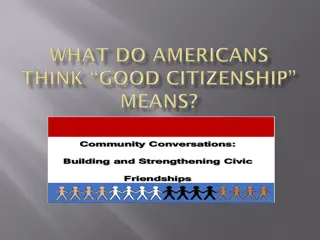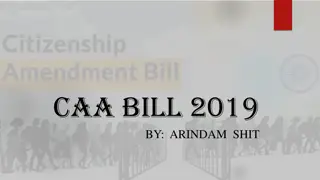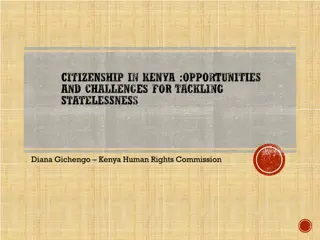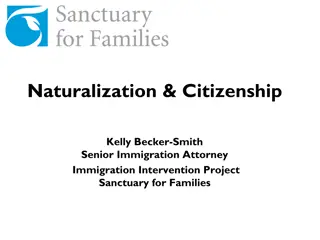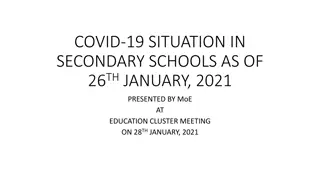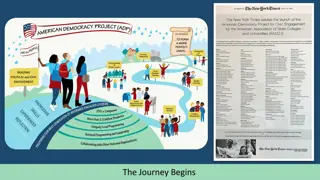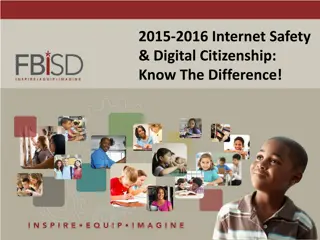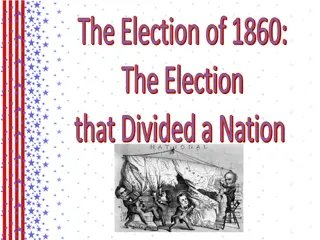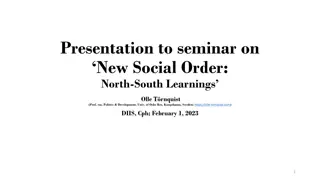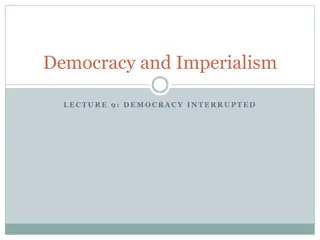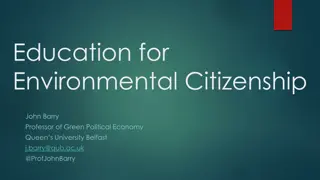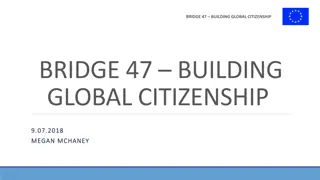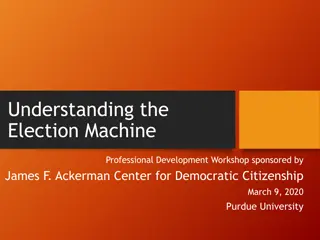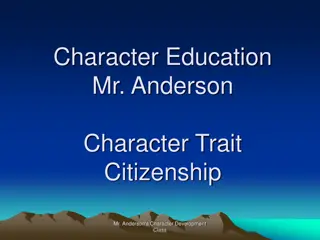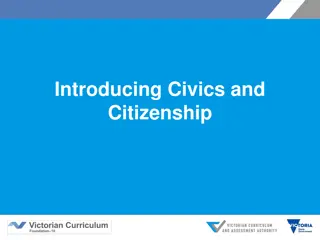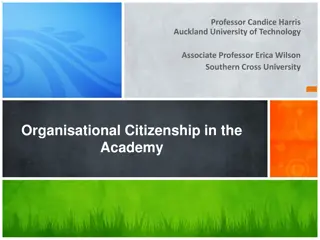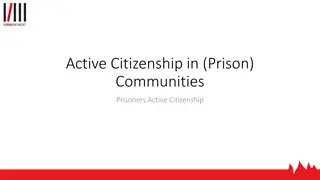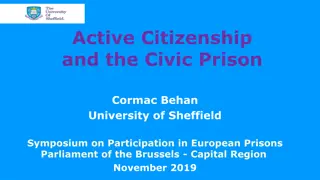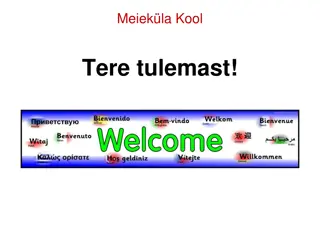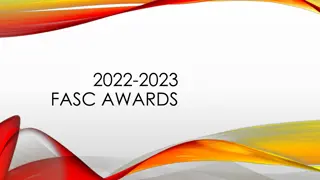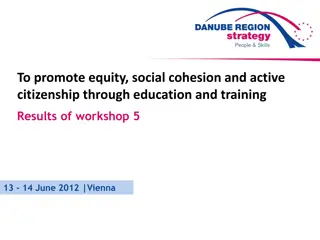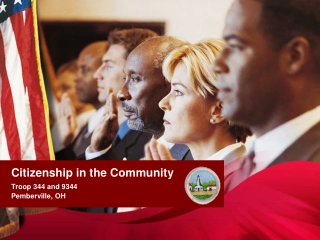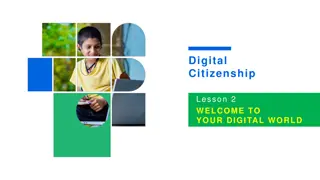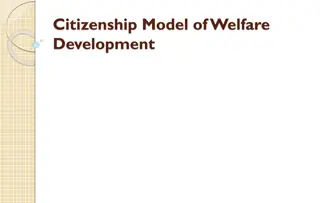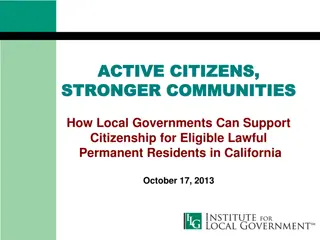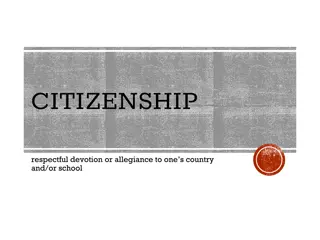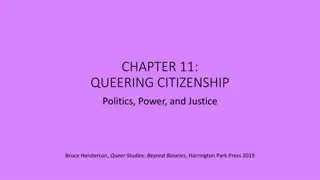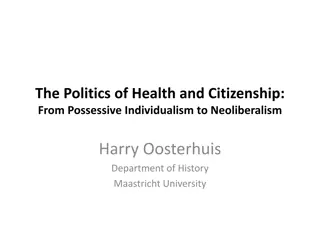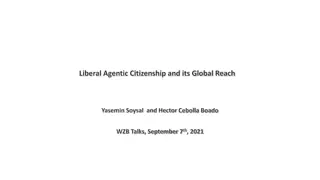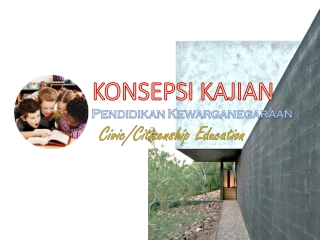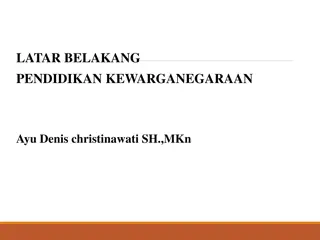Importance of Democratic Citizenship Education in Primary Schools
Promoting democratic citizenship education in primary schools is essential for fostering a sense of community, conflict resolution skills, empathy, and embracing diversity among students. The curriculum focuses on themes like group cohesion, conflict resolution, communication, empathy, community participation, and diversity. Implementing long-lasting programs with clear objectives and continuous evaluation is crucial. The plea emphasizes the need for sustainable citizenship education programs in Europe. Germany, Georgia, Latvia, Armenia, Italy, Romania, and Poland have shown interest in such initiatives.
Uploaded on Sep 13, 2024 | 0 Views
Download Presentation

Please find below an Image/Link to download the presentation.
The content on the website is provided AS IS for your information and personal use only. It may not be sold, licensed, or shared on other websites without obtaining consent from the author. Download presentation by click this link. If you encounter any issues during the download, it is possible that the publisher has removed the file from their server.
E N D
Presentation Transcript
Education to Democracy: important and urgent Democratic citizenship in primary schools
The Peaceable School Pupils designing new schoolyard Democratic citizenship in primary schools
In a peaceable school students learn to: 1. make decisions together in a democratic way 2. resolve conflicts constructively 3. take responsibility for each other and for the community 4. adopt an open attitude towards differences between people 5. principles by which the democratic society is organized Democratic citizenship in primary schools
Components of the program A whole-school approach Curriculum for all students: weekly lessons in all grades from 2-12 year 1300! primary schools Democratic citizenship in primary schools
Six themes 1. We belong together: a positive group 2. We solve our conflicts and problems ourselves: conflict resolution 3. We listen to each other: real mutual communication/dialogue 4. We care for each other: Empathy and expressing and recognizing feelings 5. We contribute to the community: mediation and active participation 6. We are all different: diversity and inclusion Curriculum: every week a lesson Democratic citizenship in primary schools
De Vreedzame School Peer mediators
School is important ! School, pre-school and childcare are the places where children can learn to develop citizenship in a social, divers environment Democratic citizenship in primary schools
The point is There is a need for long-lasting programs for citizenship education with: 1. Clear targets 2. Curriculum with learning lines through the grades 3. School is training-ground for citizenship competences 4. Evaluates its results Requests from: Germany, Georgia, Latvia, Armenia, Italy, Romania. In Poland it works! Let me tell you about it: Democratic citizenship in primary schools
The Plea and 3 Requests Request 1: Facilitate an inventory in Europe of sustainable and systematic programs for democratic and active citizenship for the age group 2 to 12 years. Request 2: Facilitate the ability to adopt, translate and adapt such well-running programs Request 3: Facilitate help and advice for successful implementation Democratic citizenship in primary schools





